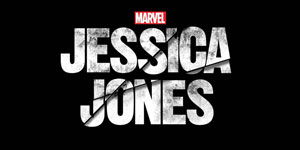The Netflix NYC neighborhood of the Marvel Cinematic Universe ended too soon with “Jessica Jones” Season 3 (June), but I have to admit these series were starting to tread familiar ground. When watching these 13 episodes, I sensed that I was still watching prestige TV, yet I also understood where things were going long before they reached the finish line, thus enhancing the stereotype that Netflix MCU shows are slow-moving.
The dark side
This is the latest story of a hero turning to the dark side. The writers underline the commonness of the arc of Trish (Rachael Taylor) when Luke Cage (Mike Colter) pays a visit to Jessica (Krysten Ritter) in episode 13 and asks her to keep an eye on him so he doesn’t go rogue. “You might say it’s inevitable,” he says when she asks if he’s going to turn bad.
But this season, Jessica is concerned with her adoptive sister, Trish, known as Hellcat in the comics but not here (although episode 11 is titled “A.K.A. Hellcat,” and Trish tries on various gaudy costumes in episode 2 before settling on a black scarf with which she hides her blonde ponytail and the lower half of her face).

“Jessica Jones” Season 3 (2019)
Netflix, 13 episodes
Creator: Melissa Rosenberg
Stars: Krysten Ritter, Rachael Taylor, Eka Darville
Last season, Jessica struggled with the fact that her mom was 1) a danger to society, yet 2) her mom. In the Season 2 finale, Trish makes the tough choice for Jessica by killing her mom, and that also marks the start of Trish’s descent.
This story isn’t on par with Faith’s turn in “Buffy,” which is so youthfully raw, or with Anakin’s in the “Star Wars” prequels, which is infused with epic mythology. But “Jessica Jones” Season 3 raises a good question in a viewer’s mind even though – or perhaps because – it refuses to ask it. Is it so clear-cut that Trish is bad? She is killing unambiguously evil people that the authorities are hopeless against.
Serial killer Gregory Salinger (Jeremy Bobb, whose lectures sound like a softer-voiced answer to “Scream’s” Ghostface) is this season’s villain. He doesn’t have the charisma of Season 1’s Kilgrave or the familial link to our heroine, but he serves the purpose of frustrating the hell out of Jessica and Trish. Salinger is super-smart and therefore doesn’t leave evidence of his kills, similar to Patrick Bateman in “American Psycho.”
Superpowered ‘cheaters’?
He also hates Jessica and Trish because they are “cheaters” – they didn’t earn their superpowers. By contrast, he aims to be a supervillain through hard work and smarts. There’s not an ounce of legitimacy to this argument because it’s coming from a serial killer, plus we know Jessica busts her ass, even if she complains a lot.

And because Jessica finds Salinger’s creepy-as-hell tanker full of rotting corpses by the fifth episode, he can’t sustain his momentum as a Big Bad. (On the other hand, he doesn’t need to, because the focus shifts to Trish.)
On the good-guy side of the ledger, Erik (Benjamin Walker) is an excellent addition. Walker has been in several shows and movies, but this is the first time I’ve noticed him; he has a goofball-tinted charisma similar to Nathan Fillion. And Erik’s superpower/curse is darn neat: He can sense the amount of evil in people because they give him headaches. Throughout the season, he helps girlfriend Jessica by rating his headaches on a scale of 0 to 10.
When Trish kills a bad person, Erik’s headache goes away. It’s like a sign from above that the world has become a better place – the balance has tipped toward good – because that person is dead. So maybe Trish is right and Jessica – who would prefer to lock Salinger in a dark hole – is wrong.
(Another interesting wrinkle here is Jessica’s given assumption that sentencing Salinger to solitary confinement is more merciful than killing him. Studies on solitary confinement make a case that it’s a cruel form of punishment, and that death would be merciful by comparison.)
The tough choices
Jessica, who couldn’t make the tough choice in Season 2, is now able to make it regarding Trish. But weirdly, the show presents it as a given that she makes the right choice to try to put Trish away, and this is where Season 3 gets both simplistic in its presentation yet fascinating as something to talk about. I’m not at all sure Jessica is making the right play, and the perversity of Jess protecting Salinger (although, from her POV, she’s “protecting” Trish from falling further to the dark side) underscores the lack of clarity.
In addition to the theme of tough choices, Season 3 is a grand study of the degree of good and evil in each character. Erik used to blackmail evil people in order to make money, rather than using his gift/curse to help stop their crimes. Malcolm (Eka Darville) is doing that “Angel” thing (and what would’ve been the “Luke Cage” Season 3 thing) of trying to do good within a powerful – but not necessarily good – organization.
Almost immediately, we see he’s not morally cut out for working at the law firm of Jeri Hogarth (Carrie-Anne Moss). Malcolm also takes up with an ex-hooker, Berry (Jamie Neumann), in a jarring switch from a girlfriend with whom he has sizzling chemistry (Tiffany Mack’s Zaya) to one with whom he does not.
Hogarth, for her part, is fully in the mode of justifying her actions even though she knows deep down they are wrong. When she takes on Salinger as a client, I sympathize with the notion that she’s simply playing her role in the USA’s adversarial justice system, which in theory is an excellent system. But this comes amid a bevy of other bad acts, including making unfounded accusations against Jessica.
Personal motives
And it’s clear Jeri is mainly interested in personal gain. She wants to steal her first love, Kith (Sarita Choudhury), away from her husband. While there is some convenient writing in Jeri’s arc – namely the fact that the husband has serious and obvious dirt on him when Jeri digs a few inches for it – Moss gives it sufficient gravity and it closes with a deliciously twisted bit of comeuppance.
Kith knows the ALS-afflicted Jeri did all this so she wouldn’t have to die alone. But nonetheless, she’s going to die alone, Kith says in a parting shot that’s all the more harsh for the factual way she states it.
A viewer can see – at least broadly — where Season 3 is going (a tip of the cap, though, to the offing of a major character in episode 8, “A.K.A. Camera Friendly”). But this is also the most slickly produced year of “Jessica Jones.” The stunt work massively improves, while retaining the same aesthetic. It might be better editing, but whatever the reason, superhero moments look comic-booky without being cheesy or cheap.
A personal favorite is Jessica flinging Trish from one rooftop to another in order to get her away from Salinger. And while this ain’t “Daredevil,” there’s more in-screen physicality than in previous seasons; Taylor and her stunt double exude athleticism with moves such as running a couple steps up a wall and turning it into a kick. And Jessica’s superpowers have never come in handier than when she leaps over a spreading pool of poop in episode 9, “A.K.A. I Did Something Today.”
Playing with the structure
Season 3 pulls off some neat, if not original, structural tricks to tell Trish’s story: In episode 2, “A.K.A. You’re Welcome,” we see what Trish – who takes over voiceover duty — was up to while we were following Jessica in the season premiere. And the further-back flashback episode, “A.K.A. Hellcat” — written by “Buffy” veteran Jane Espenson — is the season’s best hour.
Here, we see how Dorothy Walker (Rebecca De Mornay) shaped her daughter, namely Trish’s desperate need to succeed in whatever she sets out to do because she “owes the world.” This episode features great de-aging effects on Dorothy (I’m not sure if it’s digital or in-screen, which is a compliment) and a nice turn by Audrey Grace Marshall as young Trish, who breaks into Hollywood with the TGIF-style sitcom “It’s Patsy.”
Season 3’s writing is convenient at times. The cops’ moves are among the dumbest of any MCU series to this point. They suspect Jessica of being the masked vigilante, but then they let her go when the vigilante strikes while she’s in custody. Yet all along, they think she at least knows the masked woman (and on that point, they’re actually right).
So it’s an imperfect season, but as a place you visit in order to soak up a vibe, the superhero stomping grounds of Hell’s Kitchen remain a prize destination. But if “Jessica Jones” had come back for Season 4, I might’ve liked an angle other than the cost of doing good versus the cost of doing evil – or perhaps a less by-the-(comic)-book take on the question of whether killing killers makes you as bad as they are.

